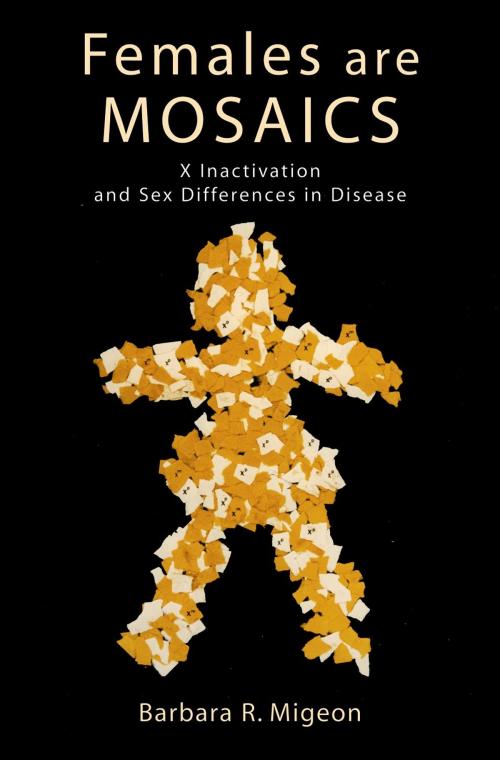Females Are Mosaics
X Inactivation and Sex Differences in Disease
Nonfiction, Health & Well Being, Medical, Medical Science, Genetics| Author: | Barbara Migeon | ISBN: | 9780190208479 |
| Publisher: | Oxford University Press | Publication: | March 15, 2007 |
| Imprint: | Oxford University Press | Language: | English |
| Author: | Barbara Migeon |
| ISBN: | 9780190208479 |
| Publisher: | Oxford University Press |
| Publication: | March 15, 2007 |
| Imprint: | Oxford University Press |
| Language: | English |
Women can be described as genetic mosaics because they have two distinctly different types of cells throughout their bodies. Unlike males, who have one X chromosome (inherited from their mother), females have two X chromosomes in every cell (one from each parent). The fathers copy works in some cells, while the mothers copy works in others. These two X chromosomes often function differently, especially if one carries a defective gene. Much has been written about the Y chromosome and its role in inducing maleness. This will be the first book about the X chromosome as a key to female development and the role of X-related factors in the etiology of sex differences in human disease. Barbara Migeon, from the renowned McKusick-Nathan Institute at Johns Hopkins, is a major figure in clinical genetics and is eminently qualified to write this book, and she writes clearly and effectively. She describes both the underlying molecular mechanisms and the remarkable genetic consequences of X inactivation and its role in determining the biological concepts characteristic of women. Females are Mosaics will be valuable to geneticists, biologists, and all health professionals interested in women's health.
Women can be described as genetic mosaics because they have two distinctly different types of cells throughout their bodies. Unlike males, who have one X chromosome (inherited from their mother), females have two X chromosomes in every cell (one from each parent). The fathers copy works in some cells, while the mothers copy works in others. These two X chromosomes often function differently, especially if one carries a defective gene. Much has been written about the Y chromosome and its role in inducing maleness. This will be the first book about the X chromosome as a key to female development and the role of X-related factors in the etiology of sex differences in human disease. Barbara Migeon, from the renowned McKusick-Nathan Institute at Johns Hopkins, is a major figure in clinical genetics and is eminently qualified to write this book, and she writes clearly and effectively. She describes both the underlying molecular mechanisms and the remarkable genetic consequences of X inactivation and its role in determining the biological concepts characteristic of women. Females are Mosaics will be valuable to geneticists, biologists, and all health professionals interested in women's health.















